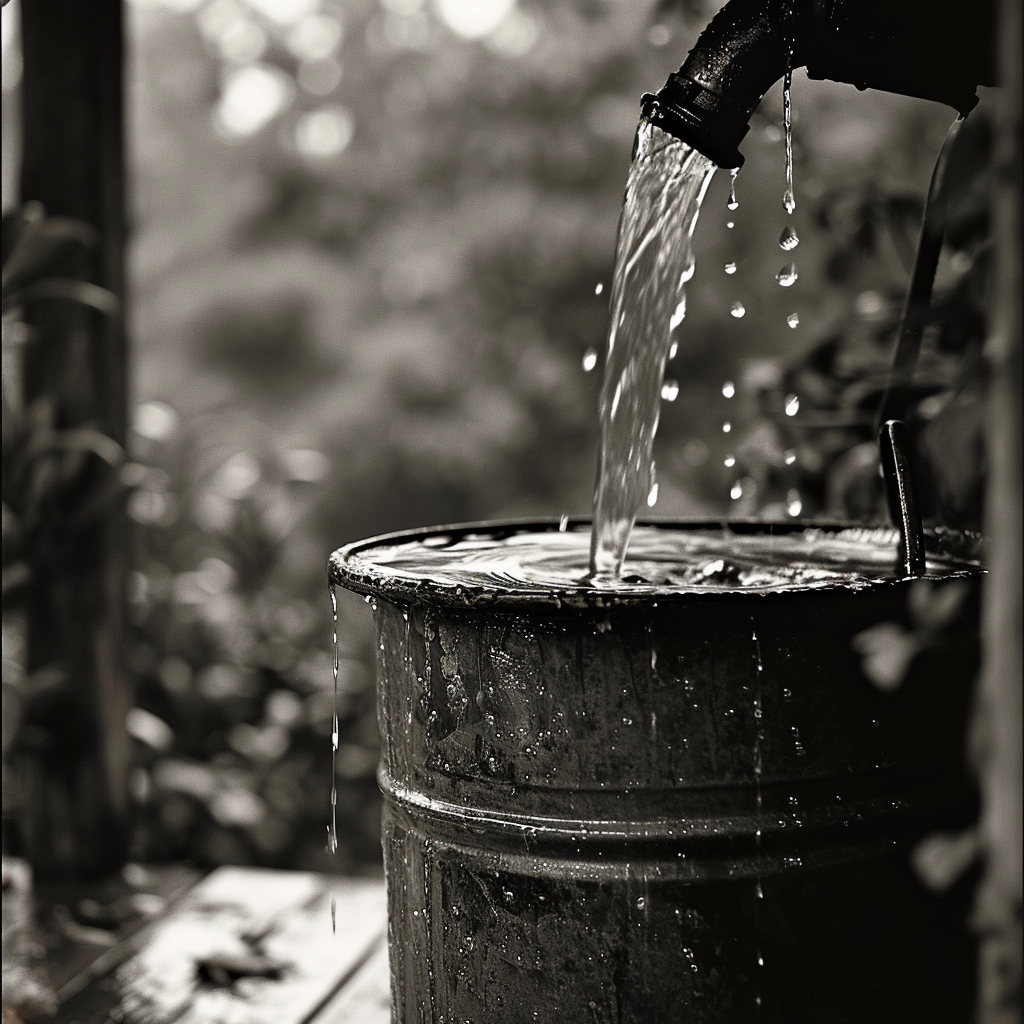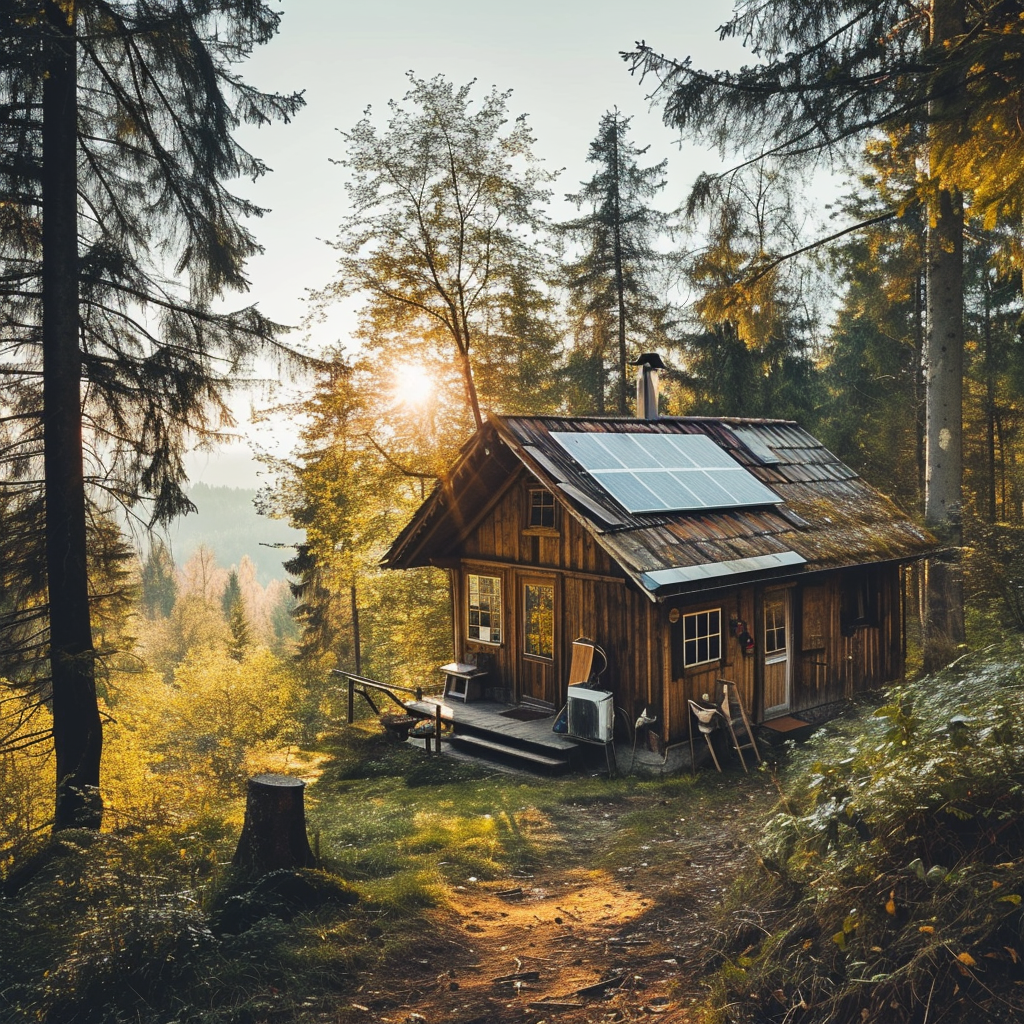Introduction to off-grid living
Off-grid living is a concept that defies traditional norms. It means disconnecting from the main power grid and living independently using renewable energy sources. This lifestyle promotes sustainability, reduces carbon footprints, and encourages a deeper connection with nature. But Is Off-Grid Living Hard? While it seems daunting to some, it offers an empowering experience for those who choose it.
Preparation and planning are key. Knowing about renewable energy systems, water management, and sustainable food production is essential. This lifestyle requires responsibility for meeting your own needs without the comforts of mainstream society. But with dedication, you can thrive.
Off-grid living offers freedom. Away from urban areas and noisy neighborhoods, individuals can find solace in natural surroundings. There’s the opportunity to reconnect with yourself and explore new hobbies in a slower pace. Living off-grid also fosters creativity, as people must find innovative solutions without conventional resources.
Let’s take a glimpse into Sarah’s inspiring journey. She decided to embrace this lifestyle after feeling disconnected from nature and burdened by modern amenities. Despite hurdles and steep learning curves, she moved into a cabin deep in the woods.
Sarah had to learn how to generate electricity with solar panels and collect rainwater. She immersed herself in permaculture by growing organic fruits and vegetables and implementing sustainable irrigation methods. She also developed skills in carpentry and upcycling old materials.
Living off-grid has been difficult for Sarah, but she has experienced immense personal growth and fulfillment. She has become more self-sufficient, resilient, and appreciative of life’s simple pleasures. Sarah’s story shows how off-grid living can be challenging yet rewarding.
Factors that make off-grid living challenging
Living off-grid can be challenging. But with careful planning and resourcefulness, you can thrive in this alternative lifestyle! Here are some factors to consider:
- Limited access to utilities: No power grids, water systems or sewage infrastructure. Cooking, heating, and hygiene become more demanding.
- Dependency on renewable energy sources: Harnessing renewable energy is an environmentally friendly approach, but it has its limitations. Solar panels and wind turbines rely on weather conditions.
- Water management: Rainwater harvesting or well systems must be monitored. Filtration or purification may be necessary for safe consumption.
- Waste disposal: Responsible waste management practices are needed, like composting organic materials, recycling, and finding creative solutions for non-recyclable or hazardous items.
- Isolation and limited resources: Off-grid living often means being located in remote areas. Self-sufficiency is key to emergencies or situations requiring specialized services.
Despite these challenges, embracing off-grid living can offer unique benefits such as reduced environmental impact and increased self-sufficiency. Strategies to overcome these difficulties include:
- Adopting efficient energy-saving measures.
- Investing in reliable backup systems.
- Developing sustainable water solutions.
- Fostering a sense of community.
- Continuous learning and adaptation.
Living off-grid may be challenging, but with these strategies, you’ll feel like you’re conquering Mount Everest while holding a solar-powered selfie stick.
Strategies to overcome challenges in off-grid living
Going off-grid can be tough, but it’s possible to overcome the obstacles with the right strategies. Here are 6 approaches that work:
- Use Sustainable Energy Sources: Invest in renewable energy sources such as solar panels or wind turbines for reliable electricity.
- Water Harvest and Conserve: Install rainwater harvesting systems, plus use water-saving techniques to meet your water needs.
- Manage Waste Efficiently: Compost and recycle to reduce waste and live sustainably.
- Ensure Food Security: Grow your own food through organic gardening or aquaponics to have nutritious produce and self-sufficiency.
- Get Community Support: Build relationships with other off-grid individuals or communities to share knowledge, resources, and support.
- Always Learn and Adapt: Stay informed about new technologies and keep improving your skills to navigate off-grid challenges.
Think about unique aspects of off-grid living that haven’t been addressed. If you live in a remote area, plan for emergencies and learn survival skills like first aid and basic construction.
Sarah is an inspiring example. She lived in the mountains of Colorado, in extreme weather with limited resources. Ingeniously, she constructed a wind turbine from salvaged materials on her property for a sustainable power source.
Off-grid living has its trials, but at least you don’t have to deal with annoying neighbors asking to borrow your lawnmower all the time!

Benefits and rewards of off-grid living
Experience the delightful benefits of off-grid living! It allows you to become self-sufficient and reduce your carbon footprint, while connecting you to nature and fostering independence. Plus, it enables you to shape your lifestyle according to your values and empowers you to find creative solutions to daily challenges.
Don’t let fear hold you back from this rewarding journey! Enjoy the profound connection to nature, increased self-sufficiency, and personal growth that comes with it. Revel in the freedom and fulfillment of off-grid living today! Sure, it may be challenging, but at least you won’t have to worry about Wi-Fi issues during online meetings.
Conclusion: Is off-grid living hard? Understanding the challenges and rewards.
Living without public utilities can be challenging, but also rewarding. Embrace self-sufficiency and nature! It takes careful planning and knowledge of green energy. The freedom and satisfaction of reducing environmental impact is invaluable. Managing resources is key, so consider solar panels or wind turbines for power, and rainwater collection for water.
Disconnect from today’s world and enjoy nature’s tranquility. Stargazing instead of TV screens is the new norm. Re-connect with yourself and the natural environment.
Off-grid living means food sources beyond supermarkets. Grow organic produce, raise animals, or harvest honey. Before transitioning, research and educate yourself on sustainable practices and self-sufficient gardening techniques. Success awaits!




